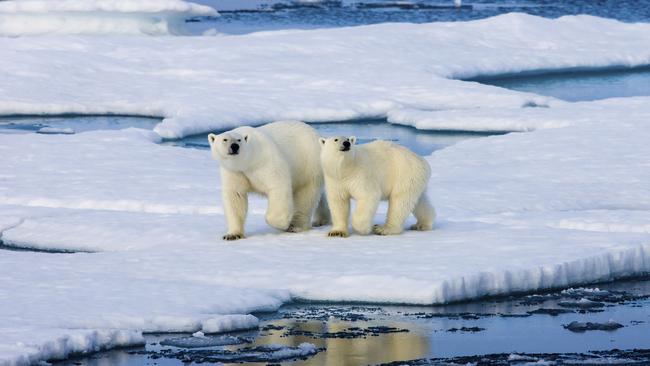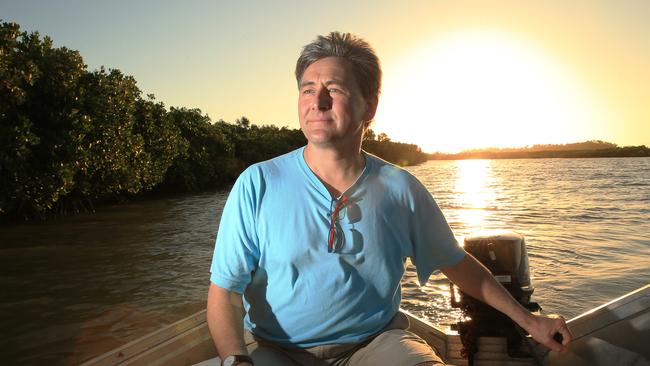‘Last-ditch’ plan to refreeze Arctic
Scientists have experimental plans to ‘repair’ the climate by refreezing the Arctic.

The University of Cambridge plans to launch a research facility to explore radical “last-ditch” methods of combating global warming, including a scheme to refreeze the Arctic.
The Centre for Climate Repair will gauge the feasibility of geo-engineering techniques, which would seek to cool the Earth by deflecting the sun’s energy into space.
It will also investigate methods of removing carbon dioxide (CO2), a greenhouse gas, from the atmosphere.
While many of the proposals have been talked about for years, all are unproven and many are likely to be unfeasible.
However, the centre is being established amid fears that current technologies and policies will not prevent catastrophic climate change.
The project is being co-ordinated by Sir David King, a former chief scientific adviser to the British government, who argues that the world has little more than a decade to find cheap, large-scale solutions.
“What we continue to do, what we do that is new, and what we plan to do over the next 10 to 12 years will determine the future of humanity for the next 10,000,” he said.

Sir David said that deep and rapid emissions reductions were necessary but that there was already too much CO2 in the atmosphere, and so technologies must be developed to remove it.
“We have been far too slow to act, so this is a bit of a last-ditch attempt,” he said. “However, it has a very good chance of success, provided we get enough agreement around the world and enough effort behind it. I’m reasonably optimistic that will happen.”
He added: “What we have to do is speed up the rate of the transition away from fossil fuels, then learn how to remove greenhouse gases from the atmosphere much more quickly and then repair the climate — that’s refreezing the Arctic and possibly the Antarctic.”
One of the ideas would involve spraying salt water high into the atmosphere in the polar regions.
This, in theory, would form salt particles that would “whiten” existing clouds, which would then reflect more heat back into space. Another proposal involves “greening” areas of the ocean by promoting the growth of plankton, which could remove carbon dioxide from the air.
There are fears that such techniques could do more harm than good by disrupting ecosystems in unpredictable ways.
There are also concerns that investing in geo-engineering lifts the pressure on politicians to cut greenhouse gas emissions.
Scientists say that all options must be on the table.
Emily Shuckburgh, who is expected to lead the centre, said: “When considering how to tackle a problem as complex and urgent as climate change, we need to look at the widest range of ideas and to investigate radical innovations such as those proposed by Sir David.
“In assessing such ideas we need to explore all aspects, including the technological advances required, the potential unintended consequences and side-effects, the costs, the rules and regulations that would be needed, as well as the public acceptability.”
The University of Cambridge said the centre was a proposal at this stage. If it goes forward as expected it will be part of the Carbon Neutral Futures Initiative, established this month at Cambridge and led by Dr Shuckburgh.
In October, the UN’s Intergovernmental Panel on Climate Change (IPCC) warned that unprecedented changes would have to be made to keep global temperatures from rising more than 1.5C above pre-industrial levels.
The panel said that countries needed to cut carbon emissions by 45 per cent by 2030 and to net zero by 2050, with additional steep cuts in other potent greenhouse gases such as methane.
A poll by YouGov found that a majority of Britons would be happy to reduce their consumption of resources to slow or halt climate change. One in three preferred an approach that relies on technology to counter climate change.
Rhys Blakely, Times science correspondent, comments: Refreezing the Arctic would involve pumping sea water into the atmosphere through very fine sieves during the polar summer, possibly using an armada of uncrewed ships.
This would create a mist. As the water was lost, tiny particles of sodium chloride — salt — would land on clouds and whiten them. A whiter cloud would reflect more sunlight into space, cooling the polar region and slowing sea-level rises.
“You’re talking about saving the world’s coastline cities and the total cost is quite possibly as low as $US2 billion ($2.8bn) to $US3 billion a year once you’ve got the technology up and running,” said Sir David King, who wants to explore the scheme.
Other ideas include finding alternative building materials to concrete, which accounts for 8 per cent of CO2 emissions. Sir David wants to look at producing steel using hydrogen-powered furnaces, which could cut the heavy carbon pollution associated with coal-fed blast furnaces.
Scientists also want to explore adding chemicals to the oceans to encourage vast blooms of phytoplankton. There are areas of the oceans that are already rich in nitrogen and phosphorous, essential fertilising nutrients. The plan would involve adding large amounts of a third crucial micronutrient: iron.

“The idea is that these blooms of phytoplankton will take up carbon dioxide, producing oxygen as well, as a nice by-product,” Callum Roberts, a marine conservation biologist of the University of York, said.
“That will lock the carbon away into organic matter, some of which would hopefully find its way into the deep sea and be put out of harm’s way for thousands of years,’’ Professor Roberts said.
“There’s a willingness now to consider ideas that would have been dismissed 10 years ago.”
The Times


